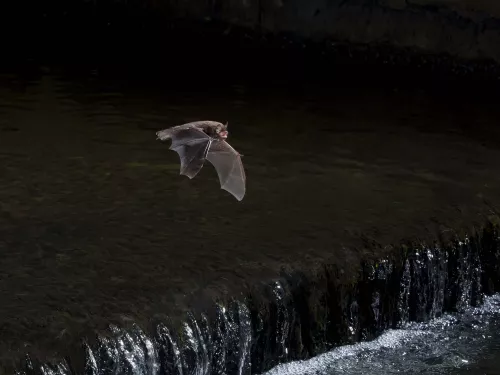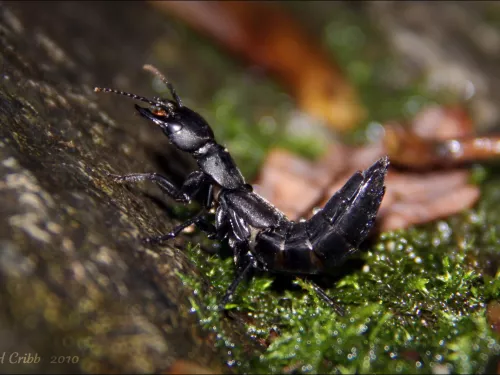
Daubenton's bat
Look out for the Daubenton's bat foraging over wetlands across the UK at twilight. Its flight is fast and agile as it skims the water's surface for insect-prey.

Look out for the Daubenton's bat foraging over wetlands across the UK at twilight. Its flight is fast and agile as it skims the water's surface for insect-prey.
These gruesome sounding creatures are actually a type of coral! They get their name as they branch out into lobes as they grow - making them look like fingers on a hand.
As its name suggests, Deadly nightshade is a highly poisonous plant. Its black, shiny berries may be tempting but fatal. Found on chalky and disturbed ground, such as scrub or verges, it has bell-shaped flowers.
Famed for its tapping in the middle of the night, supposedly heralding tragedy, the Deathwatch beetle is a serious wood-boring pest. In houses, their tunnelling can cause major damage.
This fluffy moth is one of the few species that fly in winter.
The pretty Deptford pink is a very rare flower that is very vulnerable to the loss of our traditional grassland and farmland habitats. It can only be found in a few places in England and Wales.

A ferocious and fast predator, the Devil's coach horse beetle hunts invertebrates after dark in gardens and on grasslands. It is well-known for curling up its abdomen like the tail of a scorpion when defending itself.
The pincushion-like, lilac-blue flower heads of Devil's-bit scabious attract a wide variety of butterflies and bees. Look for this pretty plant in damp meadows and marshes, and on riverbanks.
The moth-like dingy skipper is a small, grey-brown butterfly of open, sunny habitats like chalk grassland, sand dunes, heathland and waste ground.
Dittander is a herb of coastal saltmarshes and damp ground. Its waxy leaves and long roots help it to survive in this harsh environment. Due to its peppery taste, it has also become a popular garden plant.
This long-lived bivalve can be found buried in the sand on the south and west coasts of the UK.
This sea snail is abundant on rocky shores around the UK. It is an active predator, feasting on mussels and barnacles before retreating to crevices to rest.